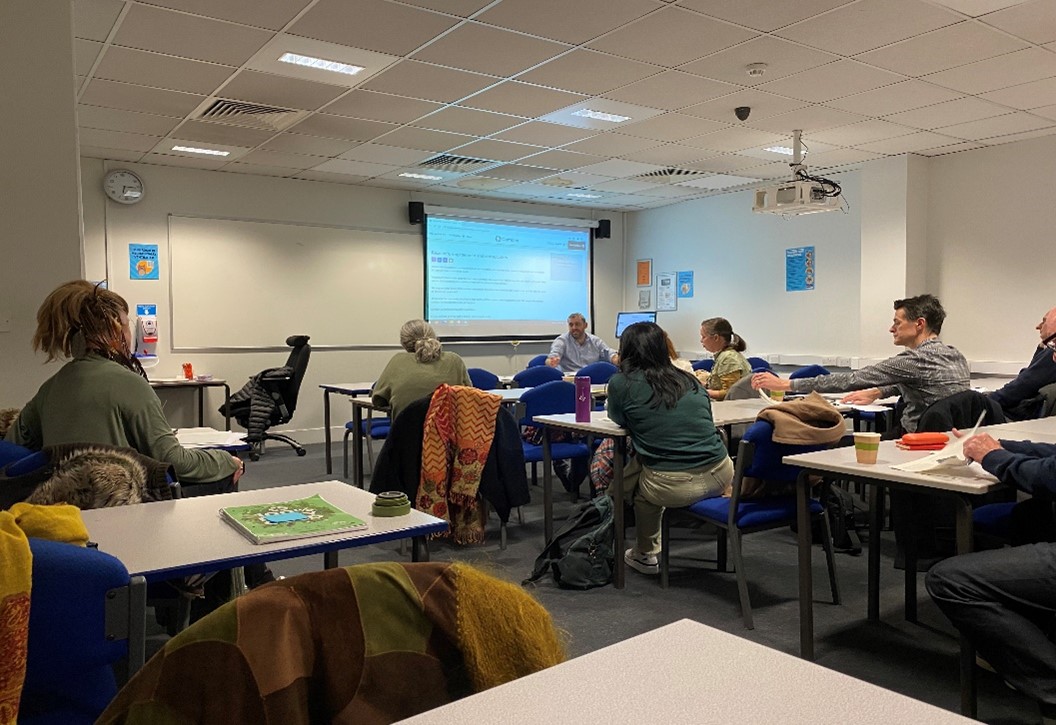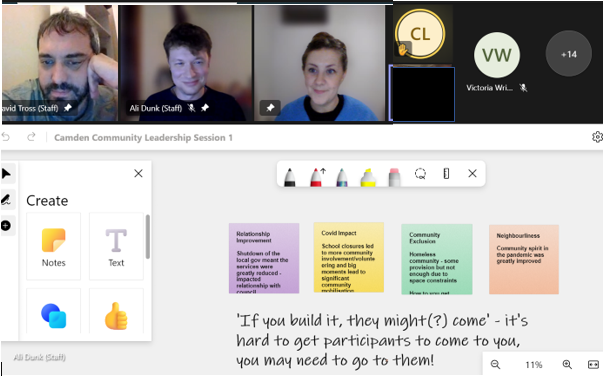In this blog, Ali Dunk, Access Officer, talks about the Community Leadership Programme for Camden Residents and how it was expanded from the department’s previous work in the London Borough of Newham.
The Community Leadership Programme for Camden Residents is run by the Access and Engagement Department in collaboration with the Community Development and Public Policy BSc in the Department of Geography.
Funded by the National Lottery Community Fund, the project aims to bring university learning to the Camden community and is part of the Access and Engagement department’s aim to bring education and learning opportunities to groups underrepresented in higher education.
After a successful three years of running Community Leadership courses for Newham Residents, Birkbeck’s Access and Engagement team and Department of Geography recently joined forces to expand the programme into the college’s home borough of Camden. Working closely with representatives from Camden Council, the existing course was reframed and updated to reflect the challenges of the pandemic, as well as focusing on specific issues faced by residents across Camden. It is a unique offer – a free five session course offering workshops that support representatives from the Camden community to make change in their local area as well as offering a space for the residents to collaborate and share their own experience and resources.
The course leader, Dr David Tross, said, “The course is called Community Leadership, not because the participants necessarily have any formal leadership role, but because they all, in various ways and through various roles, are making a contribution to their local area, demonstrating how local people can instigate change because they have a passion or will to do so. The workshops themselves cover a range of subjects, from how to develop and deliver a community project to supporting residents’ health, wellbeing and resilience.”
Some of the themes and topics discussed by the group in-session included how to utilise social media to recruit volunteers, how to access local grant funding and the best way to run a voluntary organisation. One workshop participant remarked after the final session: ‘[the course] was superb. I particularly liked how the course leader conducted the workshop and engaged with everyone perfectly’.
The support of Camden Council has been integral to the expansion of the course, with representatives from the Adult Education and Inclusive Economy teams working with Birkbeck to publicise it as well as co-designing elements that speak specifically to the issues of the borough. The course is just one element of Access and Engagement’s outreach work in Camden but works as an effective introduction to the college for many who live on its’ doorstep. Whilst the first four weeks of the course were held remotely via Microsoft Teams, the final session was on Birkbeck’s Malet Street campus, allowing participants to meet face-to-face as well as experiencing the college’s facilities first hand. Access to the course materials was provided via the college’s Moodle platform, giving the participants an insight into how to use a virtual learning environment.
If you’re interested in getting involved with Access and Engagement’s work in the community, email the team via getstarted@bbk.ac.uk.



 Information Systems from Birkbeck. He has over 20 years’ experience in industry as a Software Engineer and Software Project Manager and is currently studying for a PhD at the London Knowledge Lab where he is a member of the Weaving Communities of Practice Project. His research is in the design of tools to help domain experts integrate heterogeneous data sets.This post was contributed by PhD student Richard Brownlow.
Information Systems from Birkbeck. He has over 20 years’ experience in industry as a Software Engineer and Software Project Manager and is currently studying for a PhD at the London Knowledge Lab where he is a member of the Weaving Communities of Practice Project. His research is in the design of tools to help domain experts integrate heterogeneous data sets.This post was contributed by PhD student Richard Brownlow. 